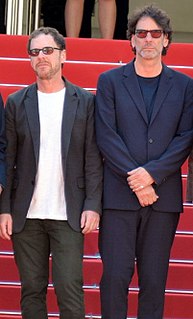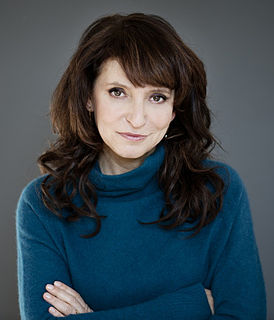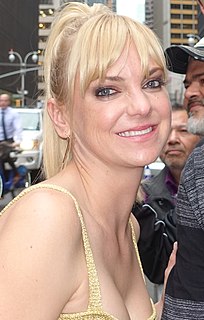A Quote by Joel Coen
Sometimes, in certain stories, I think we know at the outset essentially what the tone is going to be, or it becomes important that we're groping toward some kind of story with a certain kind of tone that we both get somehow. But I don't think how that's combined with other elements is ever in any way overtly discussed.
Related Quotes
Well, I think tone is very important with this show [Masters of Sex] because there are certain elements or certain aspects to the show that may be reminiscent of other shows. But, it really is a very new kind of show, in terms of the subject matter and the way it's being dealt with, and the fact that it's about real people and real events.
Sometimes you think, "Oh man, this is going to be a fantastic movie," and then when you see it put together, you're like, "Oh, huh. Well, that didn't turn out quite the way I thought." Sometimes you think you're part of a project and it isn't that great, and then it sort of becomes a pleasant surprise. But I think there's just too many elements that affect the tone of a movie, so I think even for a director, it may be hard to gauge that.
You have to find the tone of the piece and modulate that. There are ways to indicate that - I try to incorporate the biggest range I can within the story, going from humorous to serious without it being jarring. That's the hardest part, to keep that balance. It requires being constantly aware of where you are in the story. You can't really do that in a movie: You can't slightly modulate the tone by the way the character's eyeballs look in one certain scene.
I hate to say it because I think people are risk averse these days more than ever. Before they even pick up the phone, they know what the picture's going to be. So there's a certain comfort in that, a certain security that they can lay out the cover of the magazine and kind of know what it's going to be.
When you're working as an actor, you don't think that when you get out of school, it's going to be so hard to get a job. Just to get a job. Any job. Whatsoever. You don't think that people are going to see you in a certain way. Uta Hagen said this, "In my life, I see myself as just this, you know, kind of flamboyant, kind of sexy middle-aged woman. And then I see myself onscreen, and I go 'Oh my God.'" And it's the same thing with me. I didn't see myself any different from my white counterparts in school. I just didn't!
I just write and do what I think is funny. Sometimes, you do have it in your head about certain bits. There are certain jokes where I know if I did them in certain situations, it would irk people. There are times where I look at the news and see a story going on, and I'm like, 'Wow, if I tweeted this, I would get press if I wanted to.'






































